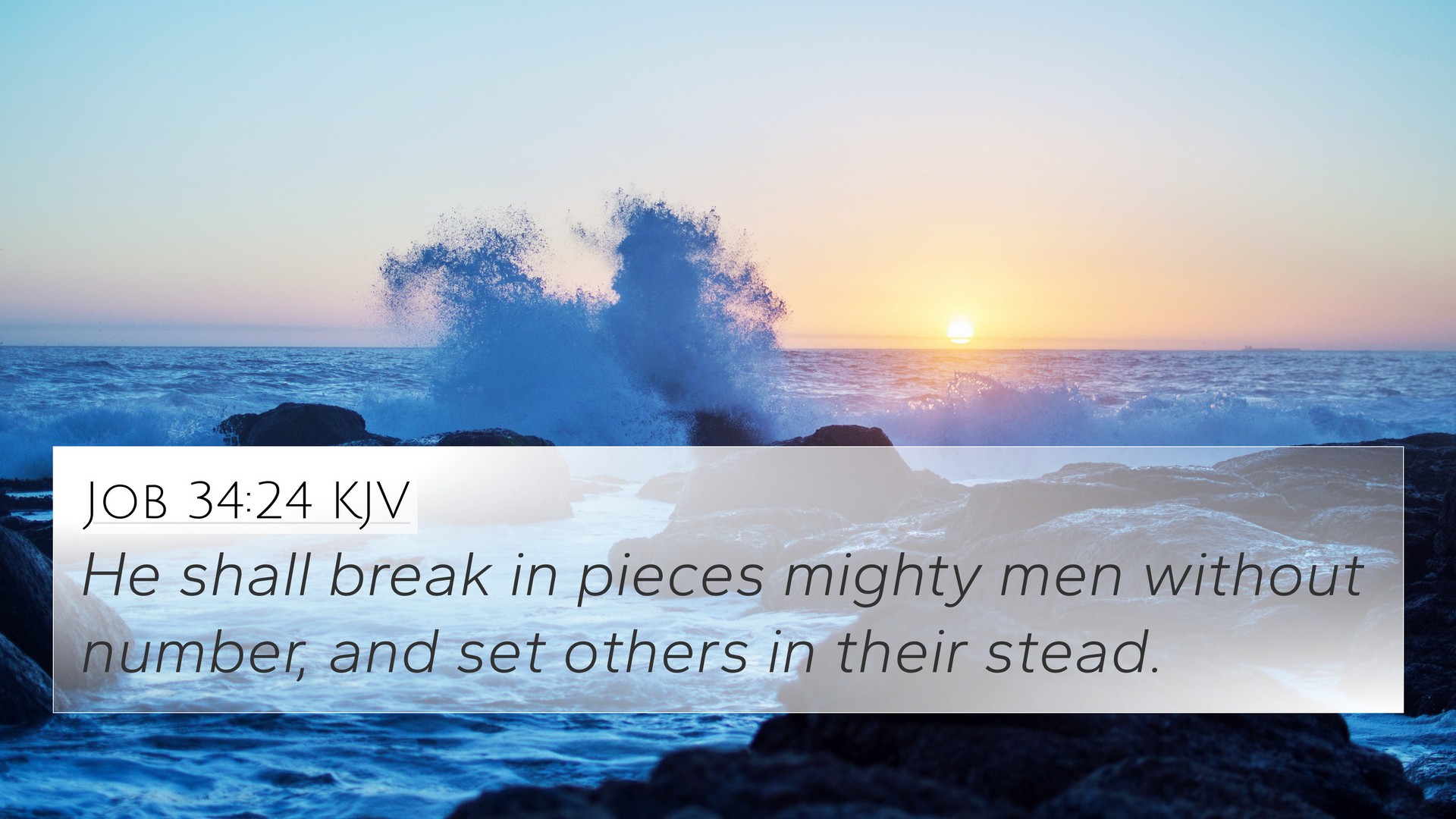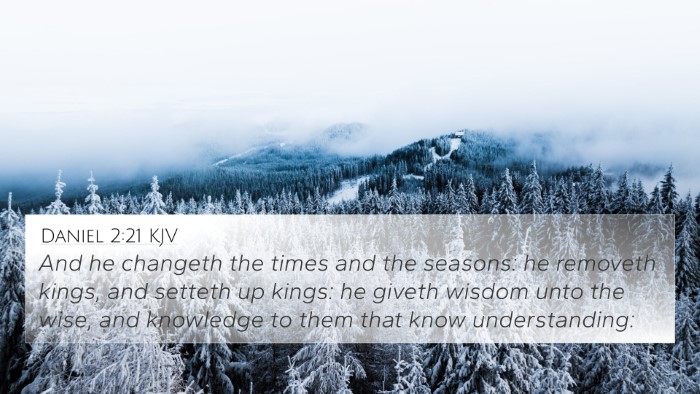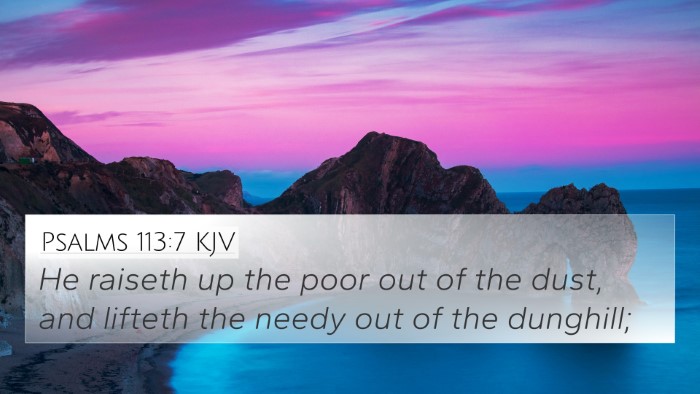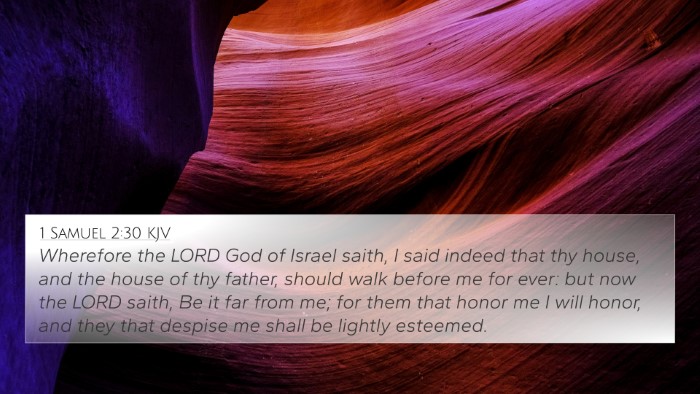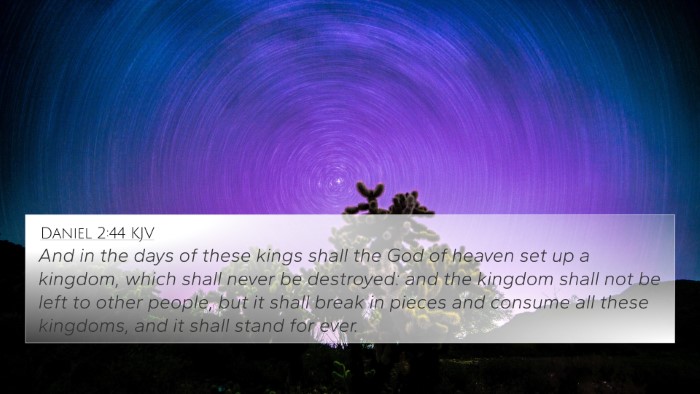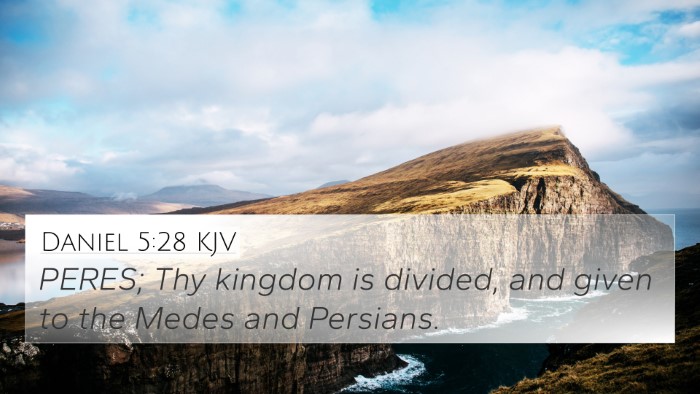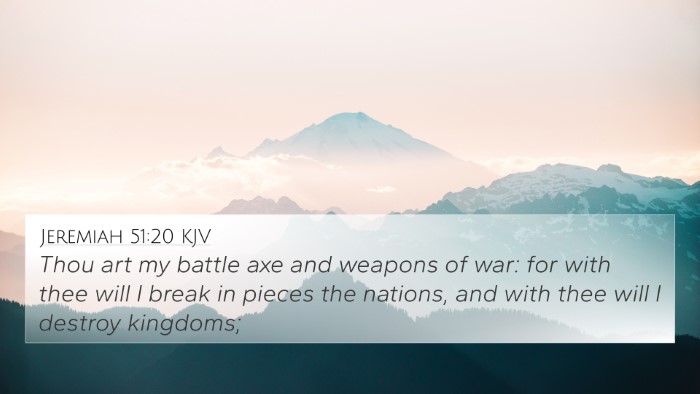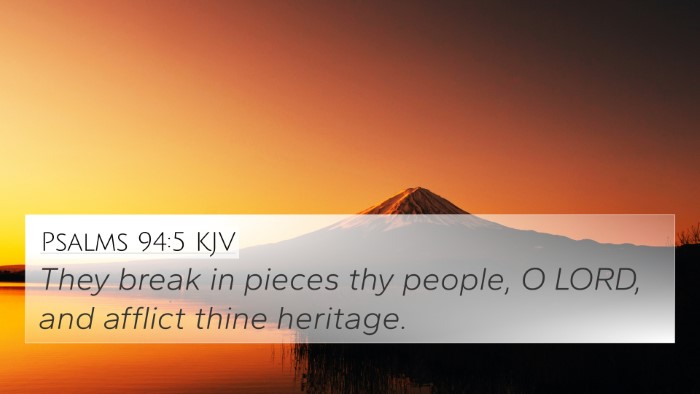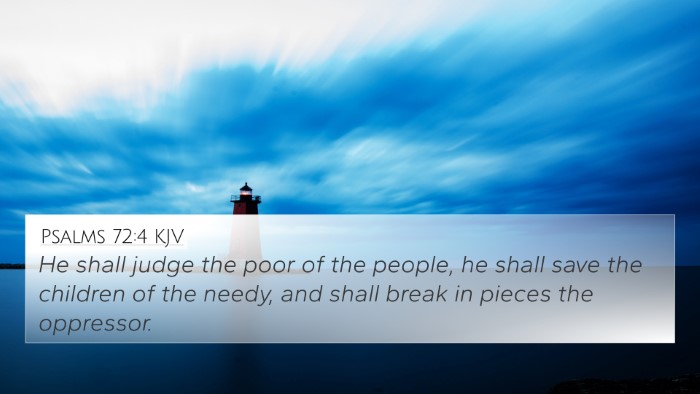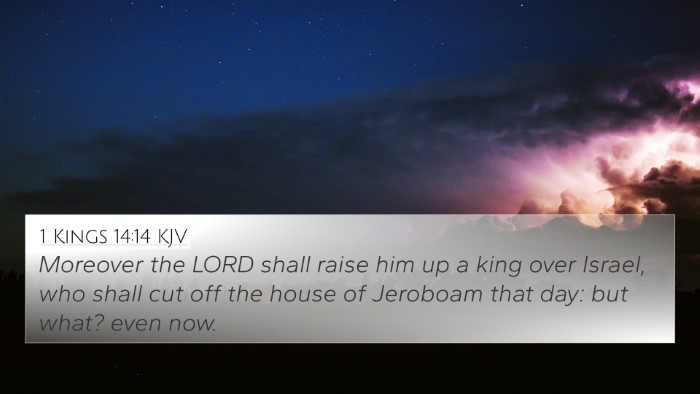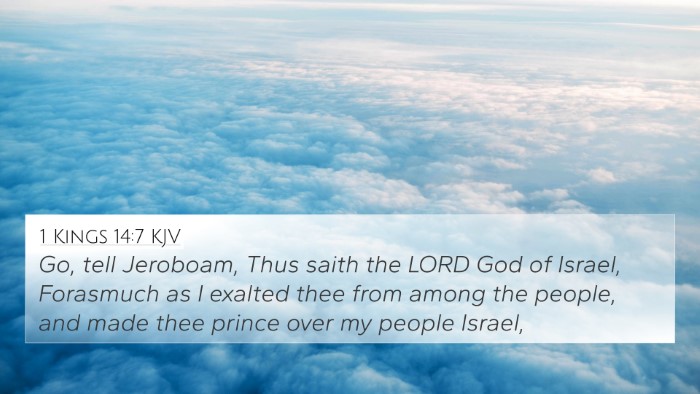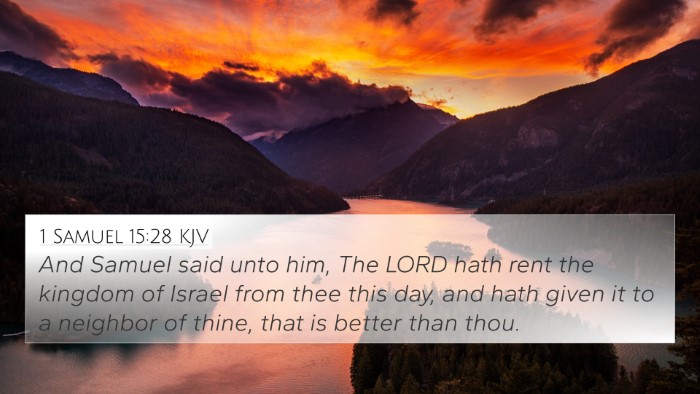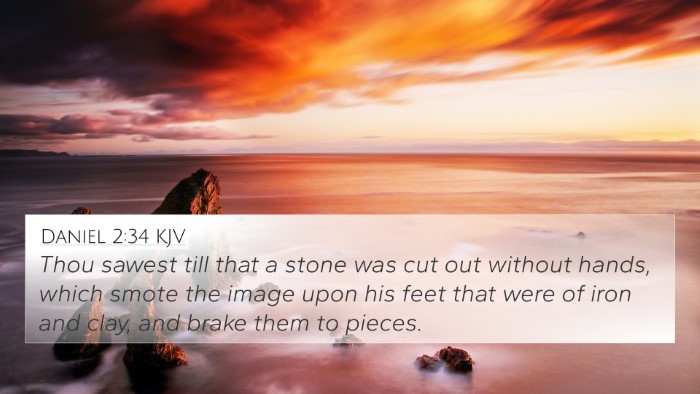Understanding Job 34:24
Job 34:24 states, "He shall break in pieces mighty men without number, and set others in their stead." This verse, imbued with profound theological significance, illuminates God's sovereign authority over human affairs and the varying fate of individuals in societal hierarchies.
Meaning and Interpretation
In interpreting Job 34:24, we draw on the insights from Matthew Henry, Albert Barnes, and Adam Clarke, who emphasize the following themes:
- Divine Sovereignty: Both Matthew Henry and Albert Barnes highlight God's ultimate control over rulers and nations. In His wisdom, God has the power to raise up or bring down leaders at will.
- Moral Justice: This verse serves as a reminder that those in power are accountable to God. Adam Clarke notes that the removal of the 'mighty' can signify a judgment against their unrighteousness.
- Transience of Power: The concept of 'setting others in their stead' suggests the impermanent nature of authority and how God can easily replace leaders, regardless of their might.
- Human Condition: Henry also reflects on the vulnerability of humanity. No matter how powerful a person may be, they stand under God's judgment and are subject to His purposes.
Cross-Referencing Biblical Texts
To deepen our understanding of Job 34:24, we explore its connections to several other verses in the Bible:
- Psalms 75:6-7: "For promotion comes neither from the east, nor from the west, nor from the south. But God is the judge: He puts down one, and sets up another."
- Daniel 2:21: "And he changes the times and the seasons; he removes kings, and sets up kings: he gives wisdom unto the wise, and knowledge to them that know understanding."
- Luke 1:52: "He hath put down the mighty from their seats, and exalted them of low degree."
- Proverbs 21:1: "The king's heart is in the hand of the Lord, as the rivers of water: he turneth it whithersoever he will."
- Isaiah 40:23: "That bringeth the princes to nothing; he maketh the judges of the earth as vanity."
- 1 Samuel 2:7-8: "The Lord makes poor and makes rich; he brings low and he exalts. He raises up the poor from the dust, and lifts the needy from the ash heap."
- Revelation 17:12: "And the ten horns which thou sawest are ten kings, which have received no kingdom as yet; but receive power as kings one hour with the beast."
Thematic Connections
When analyzing Job 34:24, we see a prominent theme of divine authority intertwined with justice and accountability:
- Authority and Accountability: The verse underscores the idea that authority is not self-sustained but subject to God's will.
- Change and Transition: Reflects on the cyclical nature of power and God’s direct involvement in human governance.
- Moral Imperative of Leadership: A cautionary position on the ethical responsibilities of those in leadership roles.
Practical Application
Incorporating Job 34:24 into daily life can encourage believers to:
- Trust God's Plan: Understand that God is sovereign even in tumultuous times of political and personal upheaval.
- Uphold Justice: Strive for fairness and equity in all interactions, remembering the transient nature of human power.
- Engage in Prayer: Seek divine guidance for leaders and those in power, upholding them in prayer.
Conclusion
Job 34:24 serves as a poignant reminder of God's supreme authority and the transient nature of human power. Through careful study and cross-referencing with other Biblical scripture, we can grasp the intricate relationships between divine sovereignty and the moral obligations of leadership. As believers delve into the depths of this verse, utilizing tools for bible cross-referencing can enrich their understanding and application of these timeless truths.
